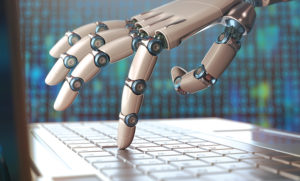**Update: Dabtie Tsai shares her insight of the accounting industry in a recent interview by Ideamensch.
As with everything in the modern era, the world of accounting is changing as new and innovative technology enters into the workforce. While these technologies are geared towards making work easier and more efficient, it is still necessary for those in the industry to anticipate the impact they will have on their efforts so as to be able to tailor their careers accordingly. Towards this end, we’re taking a look at the future of accounting with some help from industry veteran, Dabie Tsai. Read on for a look at her thoughts and more about what can be expected in the coming years in the changing world of accounting.
Personal profile
In order to illustrate her expertise in the field, let’s first take a look at some of the qualifications Dabie Tsai holds to be able to comment on the topic at hand. A former partner with KPMG, a leading global firm that provides tax, audit, and advisory services, she has a long history of working at the upper tier of the accounting industry. Her twenty-three years with the company saw her hone a variety of specialized expertise including SEC filings in both US GAAP and IFRS, consolidations and financial reporting, and matters of corporate governance. She is also an expert in SOX 404 controls and processes, credit risk, and a wide range of financial instruments.
Tsai also has a broad range of experience in matters taking place on the international stage, an issue with ever-increasing relevance as the global community becomes more interconnected. In the course of her work, she has been based in four different countries spanning three continents, in addition to a myriad of projects in numerous other countries. This work brought her into contact with some of the largest financial institutions in their respective countries and saw her hold a range of leadership roles on the teams serving these firms. She is fluent in English, Spanish, and Chinese and supplements her professional international experience with extensive time spent traveling abroad.

Technology’s impact on accounting
Like almost every area of the modern economy, the story of the development of the field of accounting is one that has been heavily influenced by the development of technology. Of course, one of the major technological advancements in the field has been the creation and advancement of computers in recent history. In today’s professional landscape, almost every task is routed through a computer in some manner of speaking and it is essentially impossible to work in the modern field of accounting without at least a moderate level of computer proficiency.
Another technology that has left its mark on accounting and the workplace, in general, is the internet. With the world becoming more and more globalized as time passes, the internet has become an indispensable tool for firms and organizations seeking to partner with geographically distant institutions. Even intra-office communications are often routed through the internet, with email and messaging applications having a pivotal impact on the efficiency of the modern workplace. This aspect of technology affecting globalization and communication is a key focus of Dabie Tsai. “Increasingly we’re all becoming global citizens,” says Tsai “And that interconnectedness affects all aspects of modern business.”
Coming advancements
Tsai and other industry experts agree that one of the next big advancements poised to majorly impact the accounting world is the advent of machine learning. This growing area of technological advancement will have the potential to drastically change the way we work. So radical are the potential changes associated with the technology that many experts think that the workforce will have to adapt to accommodate its introduction in much the same way it changed with the adoption of computers into modern offices.
Machine learning is essentially a form of artificial intelligence. It is a subset of the field that allows machines to use algorithms to learn and interpret data about the world around us, leading them to be able to predict outcomes with increasingly accurate results. The more time a machine learning algorithm spends with a particular field, the more it is able to anticipate the needs of the work to be done and is thus able to take over many of the field’s more mundane and repetitive tasks.

What it means for accounting
Though the above technology may seem as if it is automating humans out of a job, this is not the case. Though many of the lower-level tasks associated with the field of accounting may be taken over by machine learning algorithms, this technological adoption should actually free those in the field to focus their efforts on other higher-level tasks. Professionals will be able to use their familiarity with the nuances of the field to interpret and analyze data that is being produced by the above algorithms. Additionally, they will play a critical role in providing recommendations to clients based on such data.
Another important consideration is the continued leadership roles that accounting professionals will play as the workplace evolves. As Tsai points out, “Leadership is critical to how visions and objectives are realized in businesses.” She goes on to say that “Without strong vision from those in charge any endeavor is doomed to failure, no matter how efficient other aspects of its operations are run.” This focus on leadership shows how important the continued presence of human experience will be in the future. Though some tasks in the field may be automated, there will continue to be a need for professionals who can help direct the big-picture actions of a firm or institution.
Accounting, like practically every field in the modern world, is constantly changing with the advent of new technologies. Though these technologies are built with an eye towards increased ability and efficiency in the workplace, they do have the potential to change the very nature of how work is completed on a day to day level. In order to be fully prepared for such changes, it’s important to look to the professional advisements of experts in the field such as Dabie Tsai. By understanding the manner in which the industry will be changing with the advent of machine learning and other innovations, professionals can tailor their skillsets to continue to excel in their chosen career.






